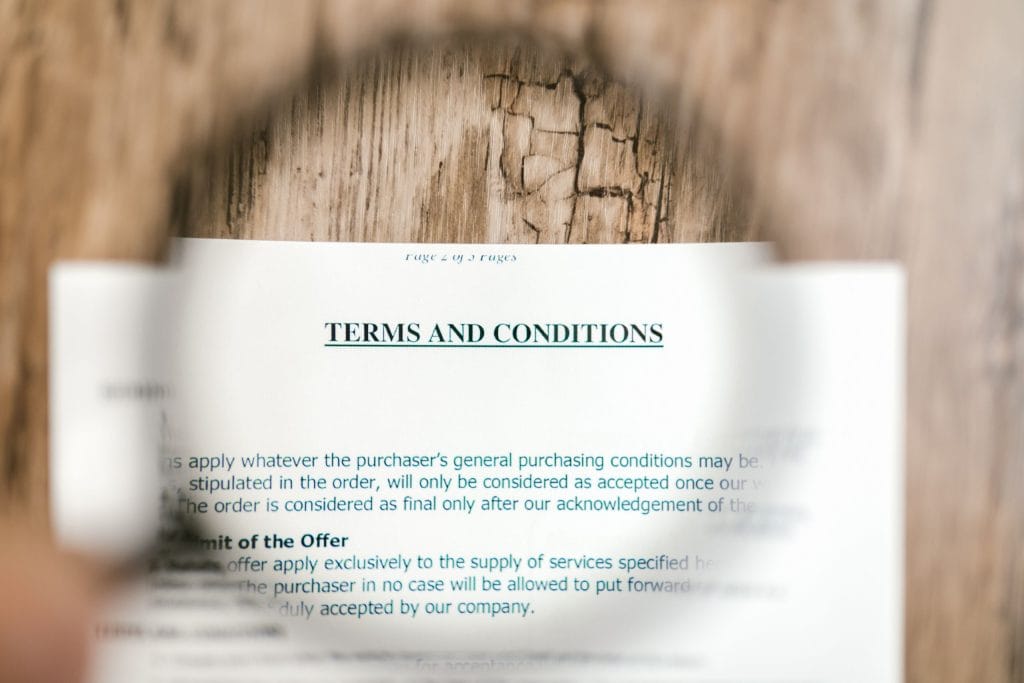Checklist for getting your e-commerce business terms and conditions right

Terms and conditions (T&Cs) are the terms of the legal contract between your business and your customers for the supply of goods or services that sets out the rights and obligations of both parties. This contract governs the relationship with your clients and is essential when starting your online business.
Gift card values and validity – what your business should know

If you’ve decided to offer gift cards on your website, you’re not alone. The gift card industry in Europe was valued at $140.1 billion in 2021 and is expected to grow fourfold by 2032, a 12.4% compound annual growth rate. Closed-loop gift cards, which are limited to purchasing good and services at the merchant listed on the card, are a terrific way to gain new business and increase sales. Open-loop gift cards offer…
Gift Cards Are Like Cash – But Customers Have a Right of Withdrawal

Gift cards are popular with consumers for many reasons. They are easy, last-minute gifts that let the recipient choose something they want. But imagine the following scenario: you order a gift card for your niece at her favourite store. You brag to your sister about it only to find out that the store was last year’s news. She’s moved on to the latest influencer-inspired trend. To be the cool Aunt, you want to return the gift card, so you can buy her one at her new favourite store. As you bought the card online in the EU, you have 14 days to change your mind. So, what do you need to know as a business about the right of withdrawal for gift cards?
EU’s Digital Services Act (DSA): the upcoming obligation to publish number of active recipients in the EU

The EU’s Digital Services Act (DSA) came into force on 16 November 2022. In our previous article on the topic, we introduced some of the key requirements of this new legislation affecting online service providers in the EU. While most of the DSA’s obligations will only start to apply from 17 February 2024, specific transparency obligations will already come into effect from 2023. In this article, we look at this upcoming DSA deadline and outline what it means for online businesses in the EU.
Strong Customer Authentication (SCA) rules: what is expected from e-commerce platforms?

One of the key provisions introduced by PSD2 was a set of security requirements for electronic payment processing, which includes the so-called “strong customer authentication” (SCA). SCA rules have a significant impact on the lives of online businesses and consumers.
What you need to know about the EU’s Proposed General Product Safety Regulation

When the current EU General Product Safety Directive was defined in 2001, e-commerce platforms were just emerging in the European Union (EU). Internet e-commerce was in its infancy, worth around €172 billion, of which 87% was B2B.
The key to outsourcing success: selecting the right partner

Choosing a good partner is crucial to the success of any outsourcing initiative. In some ways, it can be like a marriage. You look for a partner that complements you, that brings something different to the table, but who you can also trust and grow with. Planning and having a clear goal of what you want to achieve through that partnership is an important part of the process.
Black Friday Do’s and Don’ts for Online Businesses under EU law

Replacement of “Black Friday” with “Green Friday” (they say Green is the new Black), increase in reported shopping scams and high penalties for misleading practices are just some of the complaints and effects associated with certain Black Friday deals and other online sale campaigns.
Why now is an interesting time to think about outsourcing – and what you need to consider before you do

Today’s world is in flux. Employees have discovered the joys (and pains) of remote work. Location no longer matters for most professions, even retail. Freshii, a Canadian take-out, uses virtual cashiers based overseas to take orders. Virtual conferencing such as Zoom or virtual worlds such as “Decentraland”, enable face-to-face collaboration from anywhere on the planet.